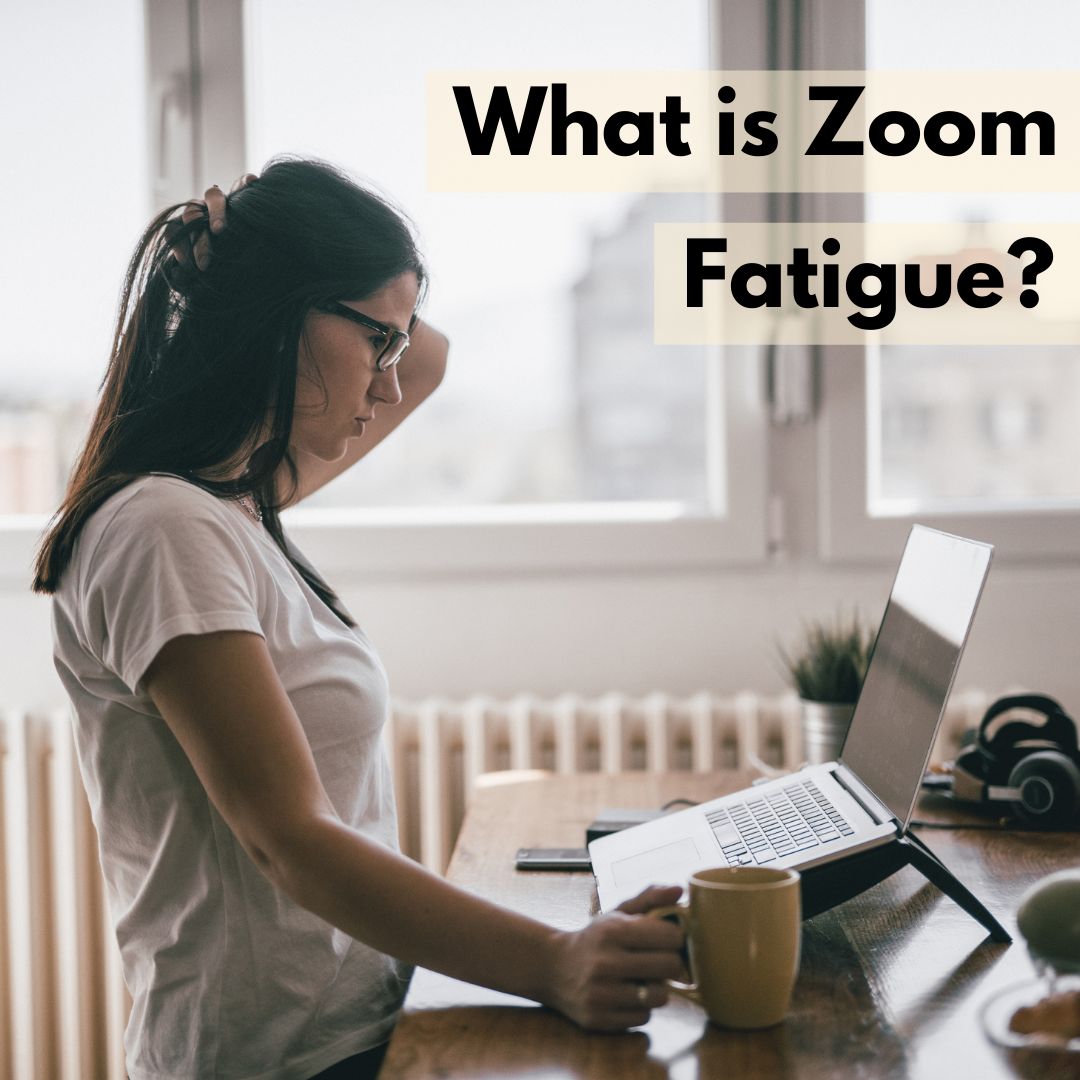Has Zoom Fatigue Affected My Eyes?

Increased screen time from the pandemic and the rise of working and schooling from home has led to an increase in Zoom fatigue. While connecting to fellow employees or classmates can be important for fostering relationships and keeping everyone feeling connected, the hyperconnectivity associated with Zoom calls leaves many feeling exhausted before, during, and at the end of the day.
Since the beginning of the pandemic, screen time has increased to a whopping 13+ hours a day. This includes the time you are focusing on projects or school work as well as the personal time taken after work to stay up-to-date on the world around you. The hyperconnected world of social media and news cycles creates an urgency to always stay informed, leaving little time to decompress and unplug from your devices.
Knowing how much Zoom fatigue and hyperconnectivity have affected your health, especially your eyes, can come to light after the major effects have already started. Keep reading to take a deep dive into some of the ways digital overload affects your eye health and how you can care for your eyes after the fatigue sets in.
The Symptoms and Causes of Zoom Fatigue
When experiencing Zoom fatigue, there are some generally universal symptoms that many people feel. Stress, irritability, headaches, and difficulty concentrating are certainly high on the list. Once those symptoms start manifesting, you’re well on your way to feeling the effects of digital overload in other areas of your wellness as well. Serious health issues in regards to your mental health like depression and lethargy can occur once you start feeling burn out settling in.
Your current eye health and the amount of time you spend staring at screens will be major components of how excessive screen time affects you. Eye strain caused by digital blue light is more common as you increase your screen usage. This strain can induce eye problems like blurry or double vision, dry or itchy eyes, and eye fatigue and discomfort. Understanding how your screen time affects your eye health is the first step of combating its symptoms.
Blue light is a type of light emitted from digital screens, computers, smartphones, and televisions, however, generally any of the screens we use on a daily basis can introduce this light to our eyes. When coming into contact with too much blue light without proper protections in place, our eyes start to feel the negative effects of blue light which include Myopia (nearsightedness, cataracts, eyestrain and retina damage.
Caring for Your Eyes
When reducing your screen time isn’t an option for mitigating your symptoms of digital overload and Zoom fatigue, it’s important to try and combat it in any way that you can. When it comes to protecting your eyes, there are many things you can do to ensure your eye health is a top priority.

Visit an Optometrist
You can start by seeing an optometrist for guidance on any vision issues you may have. If you are already someone that wears glasses, you know the importance of an annual appointment; not only does it ensure your vision prescription is as accurate as possible, but it also helps detect any new or worsening ailments. If you are someone that does not wear glasses regularly, making an appointment with an optometrist can help create a baseline for your eye health. As the years progress, your vision may change, so it is important to see an eye doctor every few years to maintain a proper understanding of your eyes.
Over-the-Counter Solutions and Supplements
Visiting an eye doctor, in any case, will give you an idea of how to combat the symptoms of digital eye strain. They may recommend things like over-the-counter solutions (eye drops to mitigate dry eyes, red eyes, itchy eyes, etc.), ocular nutrition supplements including Dry Eye Formula or Digital Blue Light Formula — or they may even prescribe stronger medications if you have already tried OTC products and found them unhelpful. They may also give you eye exercises to help strengthen your vision, as well as some tools to use daily and fight eye fatigue.
Blue Light Glasses
Many optometrists will recommend wearing blue light eyeglasses to combat eye fatigue while on digital devices each day. If necessary, these glasses can include any current eyeglass prescription you may have, or they can be a non-prescription grade for those without eyesight issues. Wearing these protective glasses can reduce the effects of blue light and help limit eye strain. Many optometrists will also recommend adjusting the brightness of your screens throughout the day as the natural light that filters into a room will increase and decrease—thus needing brighter or dimmer screens at various points of the day. Keeping your screen brightness appropriate to the lighting of the room can help alleviate digital eye strain.
Maintaining Eye Health
The amount of time we spend on our screens seems to align with the way we will work and go to school for the foreseeable future. Understanding how our screen time affects our health and wellness will help us foster a stronger awareness of how to take care of ourselves. Making sure eye health is top of mind while managing your Zoom fatigue will ensure any vision difficulties that come up can get addressed swiftly.
For more information regarding digital blue light, dry eye syndrome and other impacts from prolonged screen time, read the below:
Dry Eye: Cause, Symptoms & Supplements
These statements have not been evaluated by the FDA. This product is not intended to diagnose, treat, cure, or prevent any disease.


